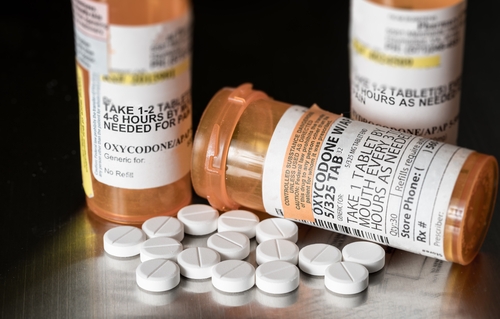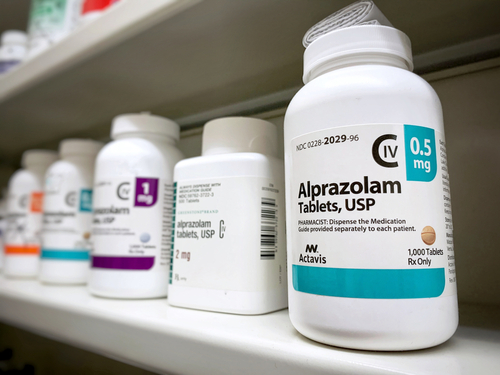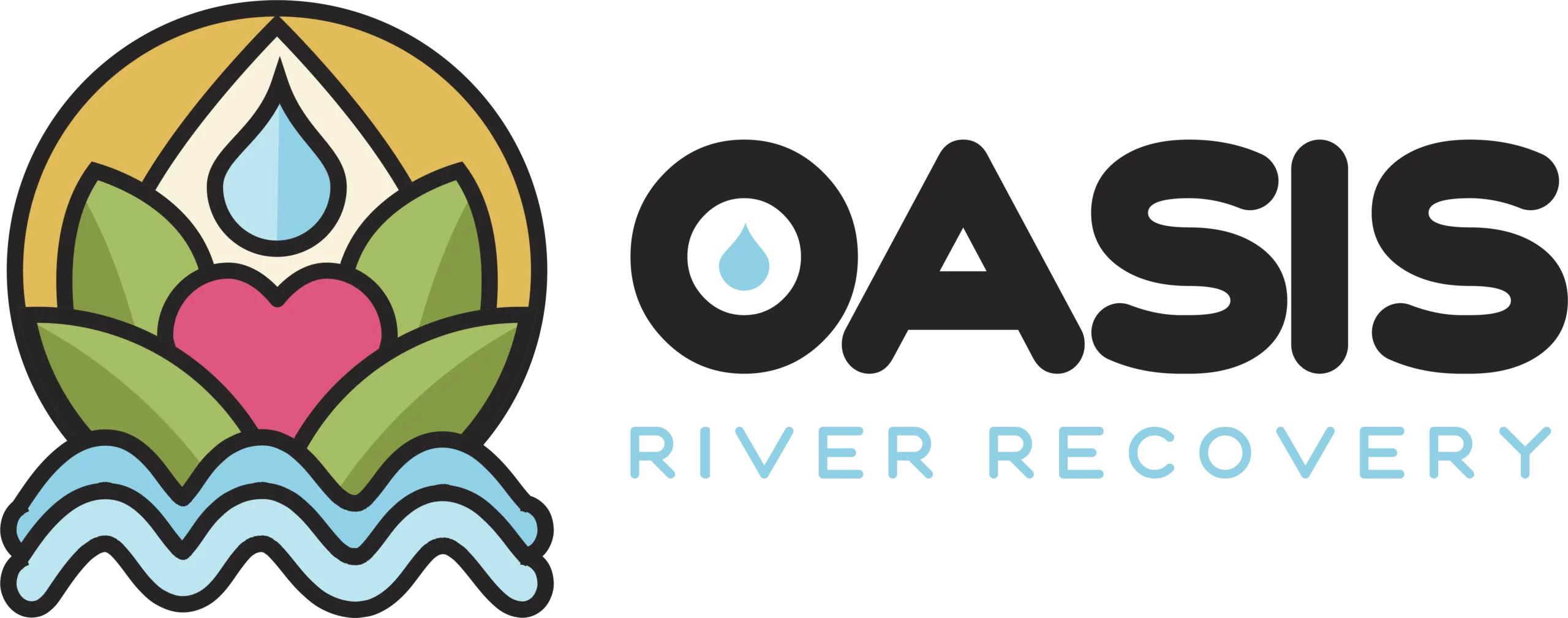Addiction is more than just a series of poor choices or a lack of self-control. In reality, it’s a chronic mental health disorder that deeply impacts the way the brain operates. This condition goes beyond seeking a momentary high or a temporary escape.
Which are the hardest addictions to quit? Substances like opioids, alcohol, and benzodiazepines are particularly challenging to overcome. They don’t just offer fleeting relief; instead, they severely alter the brain’s chemistry and function. This makes the journey to quitting these substances a challenging, but not impossible task.
Whether you’ve experienced addiction first-hand, have a family member struggling with addiction, or have never used drugs before, you should know quitting requires more than just determination.
In this article, you’ll learn about the top three hardest addictions to quit, why they’re hard to quit, and why it’s still possible to overcome them.
Are You Looking For Addiction Treatment?
Taking the first step might feel scary, but we’re here to support you. At Oasis River Recovery, our caring team is ready to guide you toward a healthier, brighter future free from substances and addiction. Contact us to learn more about our treatment programs, how we focus on healing through experiential and holistic therapy, and more!
Why Some Addictions Are Harder to Quit
To understand why certain addictions are so persistent, it’s important to look at their interaction with the brain. Addictive substances exploit the brain’s reward system (mesolimbic system), which is typically activated by activities essential for survival. This leads to pleasure and satisfaction (at first). This system normally triggers the release of dopamine, a chemical that generates feelings of enjoyment.
Addictive substances, however, distort this natural reward process by causing an abnormal surge of dopamine. As a result, the brain begins to depend on these substances for feeling pleasure or even normality. That’s how the cycle of addiction begins.
And it’s not just dopamine. Depending on the substances, there are various other brain chemicals and functions that get affected, including serotonin and norepinephrine– a recipe for psychological and physical dependence.

Addiction #1: Opioids & Heroin
One of the most common and hard-to-overcome addictions is opioids. This includes prescription painkillers, heroin, morphine, and fentanyl. The addictive nature of opioids lies in their intense interaction with the brain’s opioid receptors. These receptors – integral to the brain’s reward system – regulate pain, reward, and addictive behaviors.
When opioids bind to these receptors, they trigger an excessive release of dopamine that far surpasses what is normally produced by activities like eating or exercising. This dopamine rush brings about strong feelings of pleasure and euphoria and compels users to repeatedly seek the drug.
Repeated use of opioids, however, leads to significant changes in the brain. The brain gradually adapts and starts reducing its natural dopamine production. Consequently, users require increasing amounts of opioids to experience the same level of pleasure (also known as a tolerance). As you can imagine, this paves the way for addiction. This growing tolerance, where higher doses are needed to achieve the same euphoric effect, drives a vicious cycle of dependence. This makes opioids one of the most addictive substances.
Read more about heroin and how to treatment heroin addiction here.

Addiction #2: Alcohol
Alcohol addiction is uniquely complex because of how it affects the brain’s gamma-aminobutyric acid (GABA) neurotransmitters. GABA is important for reducing brain activity and is significantly influenced by alcohol. When alcohol boosts GABA’s effects, it results in a sense of relaxation and sedation. Many find this appealing.
Unlike opioids, alcohol impacts the brain’s reward system primarily through its interaction with GABA. However, the influence of alcohol extends beyond just GABA:
- Alcohol affects multiple brain systems, including GABA, the limbic system, thalamus, and hypothalamus.
- Regular, heavy drinking disrupts the brain’s chemical equilibrium. This can create a dependency that is marked by intense cravings and withdrawal symptoms.
- Alcohol also modifies levels of other critical neurotransmitters like dopamine and serotonin, which contributes to its addictive potential.
These changes result in mood swings, impaired judgment, and reduced impulse control, which adds layers of complexity to the struggle with alcohol addiction. Overcoming alcohol addiction means having to deal with both the physical dependency and the psychological reliance on the substance. This is why it is an exceptionally challenging addiction to break.
Read more about alcohol addiction and how it affects the body here.

Addiction #3: Benzodiazepines
Benzodiazepines are commonly abused for their calming, sedative effects. They also pose a significant challenge when it comes to quitting. But why are they one of the hardest addictions to quit? Well, they have a profound impact on the brain’s chemistry and function.
Let’s explore the progression of benzodiazepine addiction:
- Similar to alcohol, benzodiazepines increase the activity of GABA neurotransmitters. This leads to decreased anxiety and a calming effect.
- Over time, with prolonged use, the body develops both physical and psychological dependence on these drugs.
- The brain then adjusts to the continuous presence of benzodiazepines and starts to alter its natural GABA production.
- At this point, reducing or stopping benzodiazepines disrupts the brain’s equilibrium. This leads to withdrawal symptoms like anxiety, sleep disturbances, and in severe cases, seizures or life-threatening conditions.
Users often develop a heavy reliance on benzodiazepines for stress and anxiety management. This makes it extra challenging to function without them. This psychological dependency intertwines with the physical addiction. Together, they create a complex barrier to quitting.
Read more about ambien, a popular nonbenzodiazepine in the US.
Comprehensive Approach to Treating Complex Addictions
At Oasis River Recovery, we recognize the intricate nature of addictions, especially to substances like opioids, alcohol, and benzodiazepines. Our treatment approach is thorough and individualized. We address not only the physical elements of addiction but also its emotional and psychological dimensions. We treat these addictions through:
- Individual Counseling: One-on-one sessions with a dedicated therapist can help individuals address personal challenges and explore the underlying causes of addiction.
- Group Therapy: Facilitated discussions in a group setting allows individuals to share experiences, learn from others, and come together as a strong and supportive team.
- Holistic Methods: Breathwork therapy, mindfulness exercises, and experiential therapy can help individuals who need more than evidence-based psychotherapy methods.
- Tailored Treatment Plans: Addiction treatment centers that tailor each client’s unique needs into individualized treatment plans have the highest rates of success.
- Comprehensive Support: The most effective addiction treatment centers offer varying levels of care that help individuals transition from different stages of recovery without feeling overwhelmed or stressed.
These treatment approaches are designed to find and address the root causes of addiction. We want to equip individuals with effective strategies to manage cravings and avoid triggers.
Holistic Addiction Treatment At Oasis River Recovery
Making the decision to take action and overcome addictions – especially to some of the most addictive drugs like opioids, alcohol, and benzodiazepines – is a brave and significant step. If you or someone close is facing these challenges, contact Oasis River Recovery in Ocoee, Tennessee.
If you’re ready to begin your path to recovery or simply want more information, we encourage you to reach out to us. You can contact Oasis River Recovery at (423) 376-1932. Remember, reaching out for help is a commendable and vital step towards a healthier, more fulfilling future.



